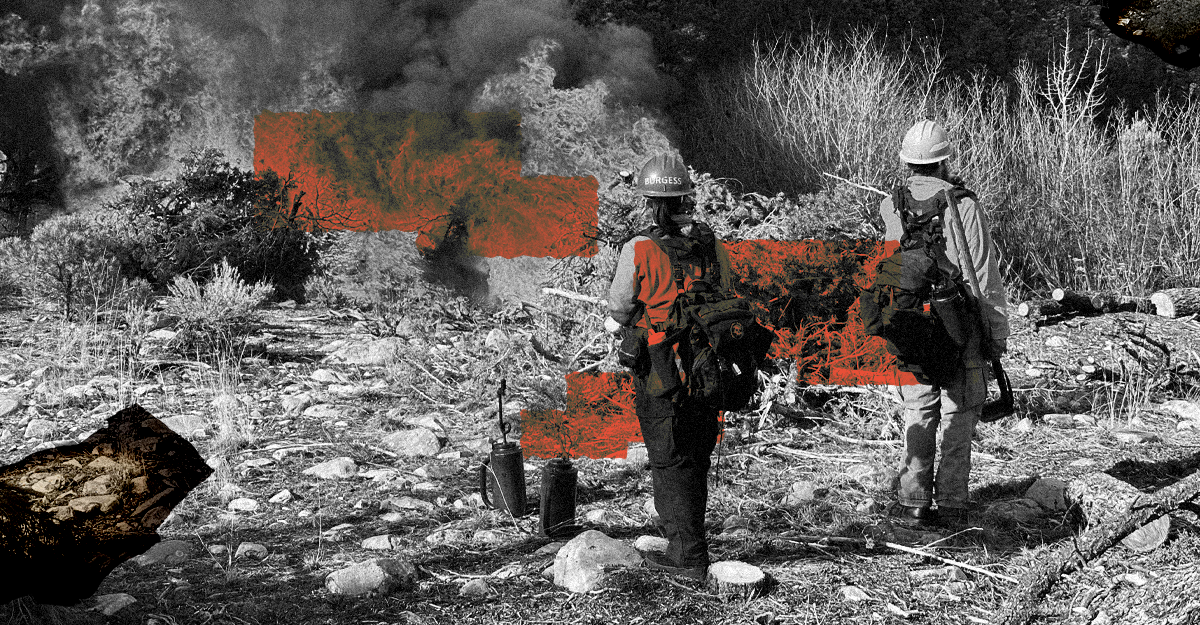
Four Guiding Principles for Accountability and Transparency in Wildfire Management
The federal government spends billions every year on wildfire suppression and recovery. Despite this, the size and intensity of fires continues to grow, increasing costs to human health, property, and the economy as a whole.
Billions of dollars newly dedicated to this challenge are an important step forward, but insufficient budget transparency and evaluation frameworks limit our ability to assess whether and to what extent interventions are achieving intended benefits for communities and ecosystems. Additionally, further investments in prevention (including beneficial fire) will be essential for decreasing skyrocketing suppression costs in the long term.
Coordinated, bipartisan action is needed so that Congress; federal, state, and local agencies; wildland firefighters; nonprofits; and the private sector understand where taxpayer funds are being spent, what interventions are achieving the intended results, and where additional resources are needed to make a downpayment on a more wildfire-resilient future.
To this end, the Federation of American Scientists is proud to have worked collaboratively with five other organizations to identify four guiding principles federal leaders can follow in order to improve the transparency and accountability of public investments in wildfire management. These principles represent a convergence of research and perspectives from leading organizations in wildfire policy, including The Pew Charitable Trusts, Taxpayers for Common Sense, Federation of American Scientists, Megafire Action, Alliance for Wildfire Resilience, and BuildStrong America. These principles are also aligned with the Wildland Fire Mitigation and Management Commission’s report to Congress, submitted to Congress on September 27, 2023.
The four guiding principles are:
- Wildfire spending should be more comprehensively tracked and reported and federal agency budgets for wildfire should be better coordinated.
- The federal government should continue to sustain and expand its investments in mitigation in order to reverse the trend of ballooning wildfire suppression costs.
- The federal government should find ways to help states and local governments better access federal resources and make their own investments to lessen the overall cost of wildfires.
- Federal agencies should use outcome-based performance metrics to evaluate the success of continued and expanded mitigation investment.
Read more about these principles and how they can be applied here.
FAS looks forward to working closely with partners inside and outside of government to advance these guiding principles and support their implementation. FAS is a resource for helping to translate these principles into action, including through technical assistance on legislation; identifying relevant research; and serving as a conduit to a broader network of experts on wildland fire.
FAS is launching the Center for Regulatory Ingenuity (CRI) to build a new, transpartisan vision of government that works – that has the capacity to achieve ambitious goals while adeptly responding to people’s basic needs.
This runs counter to public opinion: 4 in 5 of all Americans, across party lines, want to see the government take stronger climate action.
Cities need to rapidly become compact, efficient, electrified, and nature‑rich urban ecosystems where we take better care of each other and avoid locking in more sprawl and fossil‑fuel dependence.
Hurricanes cause around 24 deaths per storm – but the longer-term consequences kill thousands more. With extreme weather events becoming ever-more common, there is a national and moral imperative to rethink not just who responds to disasters, but for how long and to what end.